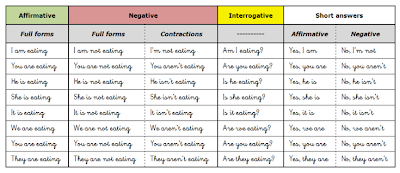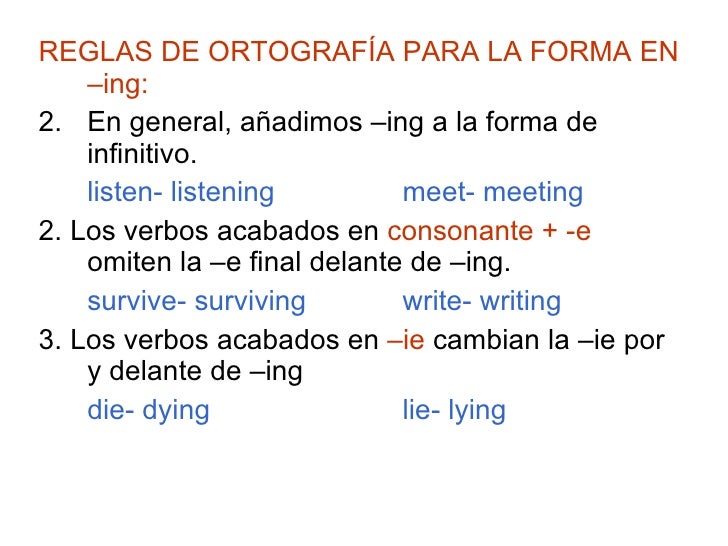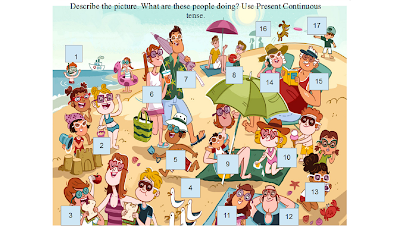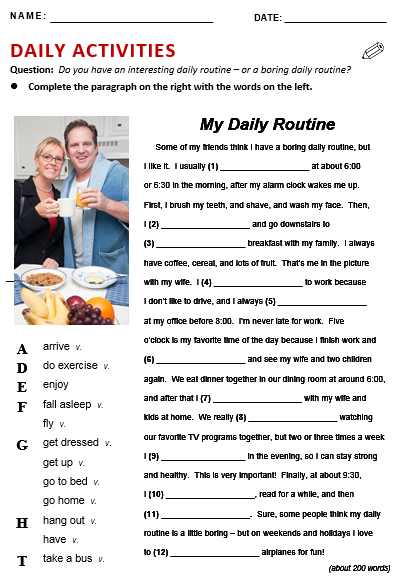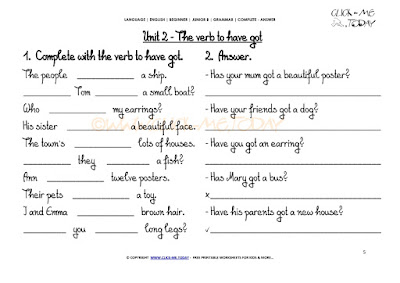martes, 15 de noviembre de 2016
Giving directions
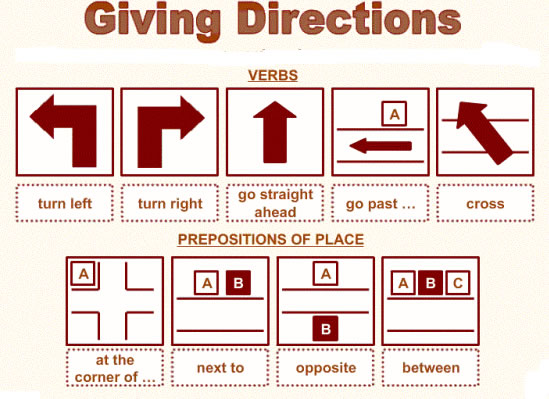
It's a very useful thing to know how to give directions to someone who asks us in the street or in case we are the one who need to ask.
Anyway, here is some practice
WATCH THIS VIDEO
EXERCISES

Exercise A: Look at the street map. Where can you find the following items?
a. some aspirins
b. CDs
c. newspaper
d. canned goods
e. some stampsf. paintings
g. fish
h. books
i. letters
j. movie
Exercise B: Make conversation with your partner. Ask and answer about the places below.
Example:
Person 1 : Excuse me? Is there a phone box near here?
Person 2 : Yes. Go straight ahead, it's on the left between the hotel and town hall.
Person 1 : Thanks a lot.
| a. A public library b. A bank c. A public toilet d. A music shop e. A supermarket | f. A bus stop g. A park h. A post office i. A school j. A shopping center |
MORE PRACTICE
MORE EXERCISES
ANOTHER EXERCISE HERE
LISTENING
GIVING DIRECTIONS-LISTENING
HOW TO GIVE DIRECTIONS-LISTENING
viernes, 4 de noviembre de 2016
viernes, 28 de octubre de 2016
free time activities

Here you'll find some free time activities to practise your vocabulary
Listening
A2 Listening: Free time
Listening : free time- British Council

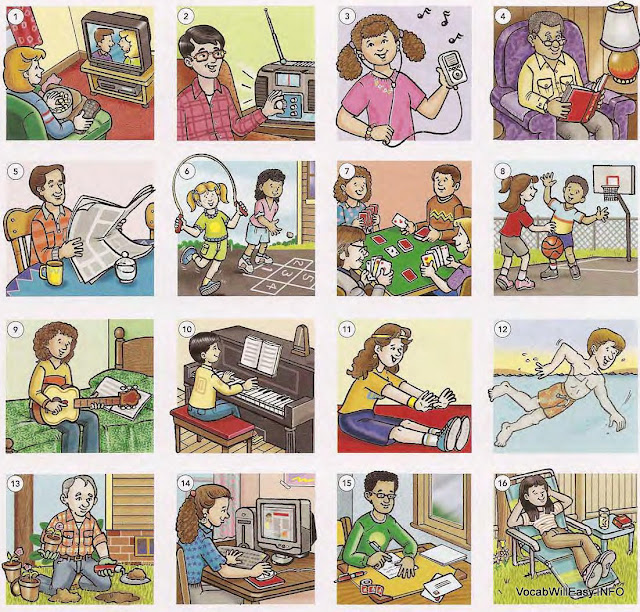
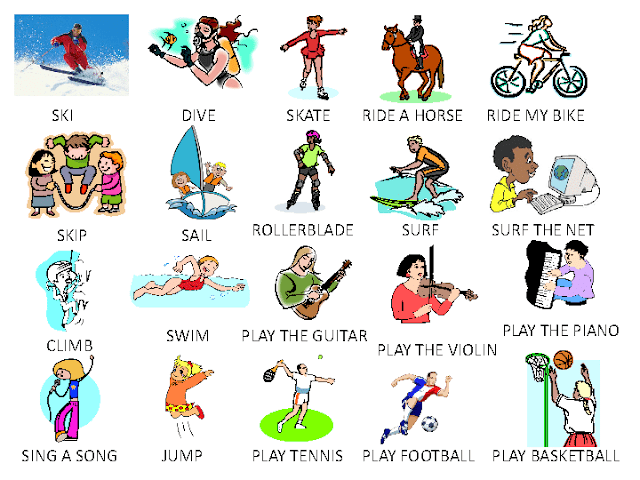
Exercise 1
Exercise 2
Exercise 3
present simple practice
Here you'll find some practice on the present simple. Hope you find it useful
CLICK HERE TO DOWNLOAD SOME SHEETS
Now you can do these exercises

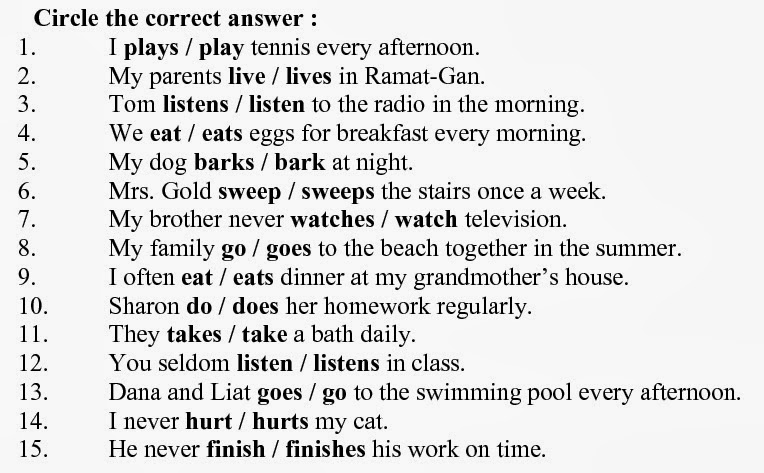
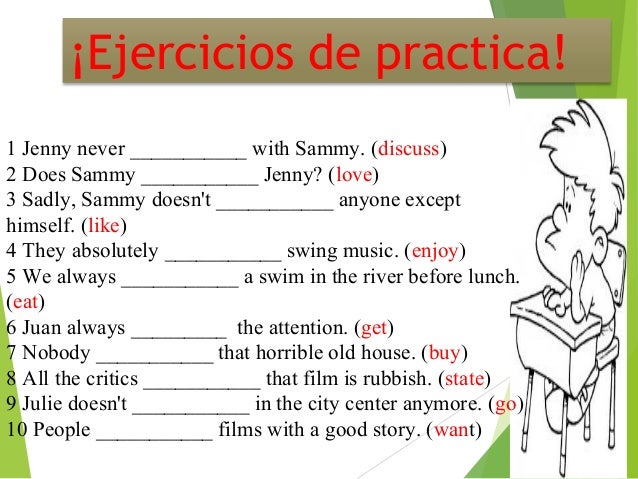
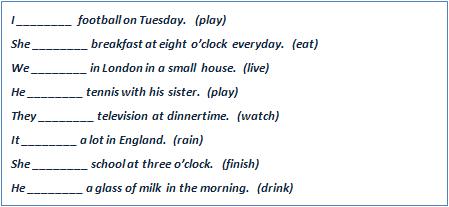
MORE PRACTICE
Exercise 1
Exercise 2
Exercise 3
Exercise 4
More exercises
CLICK HERE TO DOWNLOAD SOME SHEETS
Now you can do these exercises




MORE PRACTICE
Exercise 1
Exercise 2
Exercise 3
Exercise 4
More exercises
jueves, 27 de octubre de 2016
miércoles, 26 de octubre de 2016
personal information
Here are a few exercises on the practice of giving and asking for personal information




Jobs
Here you have a great page to practice your vocabulary on jobs and occupations
clik HERE
clik HERE
Describing Jobs from 19071967
martes, 25 de octubre de 2016
martes, 5 de abril de 2016
THERE IS-THERE ARE
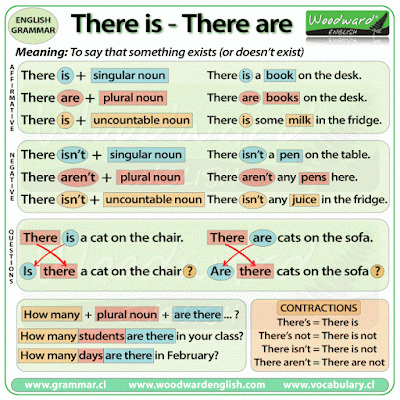
Here you can have some practice on "there is" and "there are".
"There is" means "hay" used with singular nouns, as in "There is a notebook on the table"
"There are" means "hay" used with plural nouns, as in "there are notebooks on the table".
But you must be very careful not to confuse "It is" and "there is" or "They are" and "there are"
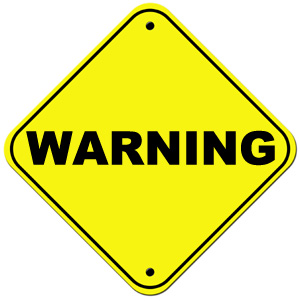
Thereis/it is they are /there are
" It is " means "es, está" or "hace" as in "It is hot" (Hace calor).
We cannot say
" They are " means "son, estan". "They are tall" (son altos), They're cold (tienen frío).
We cannot say
lunes, 4 de abril de 2016
VERB TO HAVE-PRESENT
Here is the present of the verb "to have", or "have got". It means "tener" as in "I have a car" , but it can also mean "tomar" as in "I'm having breakfast" or "He has a shower everyday". You must be careful because the particle "got" may be used when you want to mean "tener" as in "I have got a car", but we must not use it when we mean "tomar" as in "he has
domingo, 3 de abril de 2016
VERB TO BE-PRESENT
Here's a presentation of the present simple of the verb "to be" which in Spanish means "ser" o "estar". Sometimes it may also mean "tener" as in "I'm 25 years old" or "I'm hungry"(Tengo 25 años/ Tengo hambre) or "hacer" as in "It's hot " (Hace calor).
You can find a ppt presentation and some exercises below that may be useful
Suscribirse a:
Entradas (Atom)

